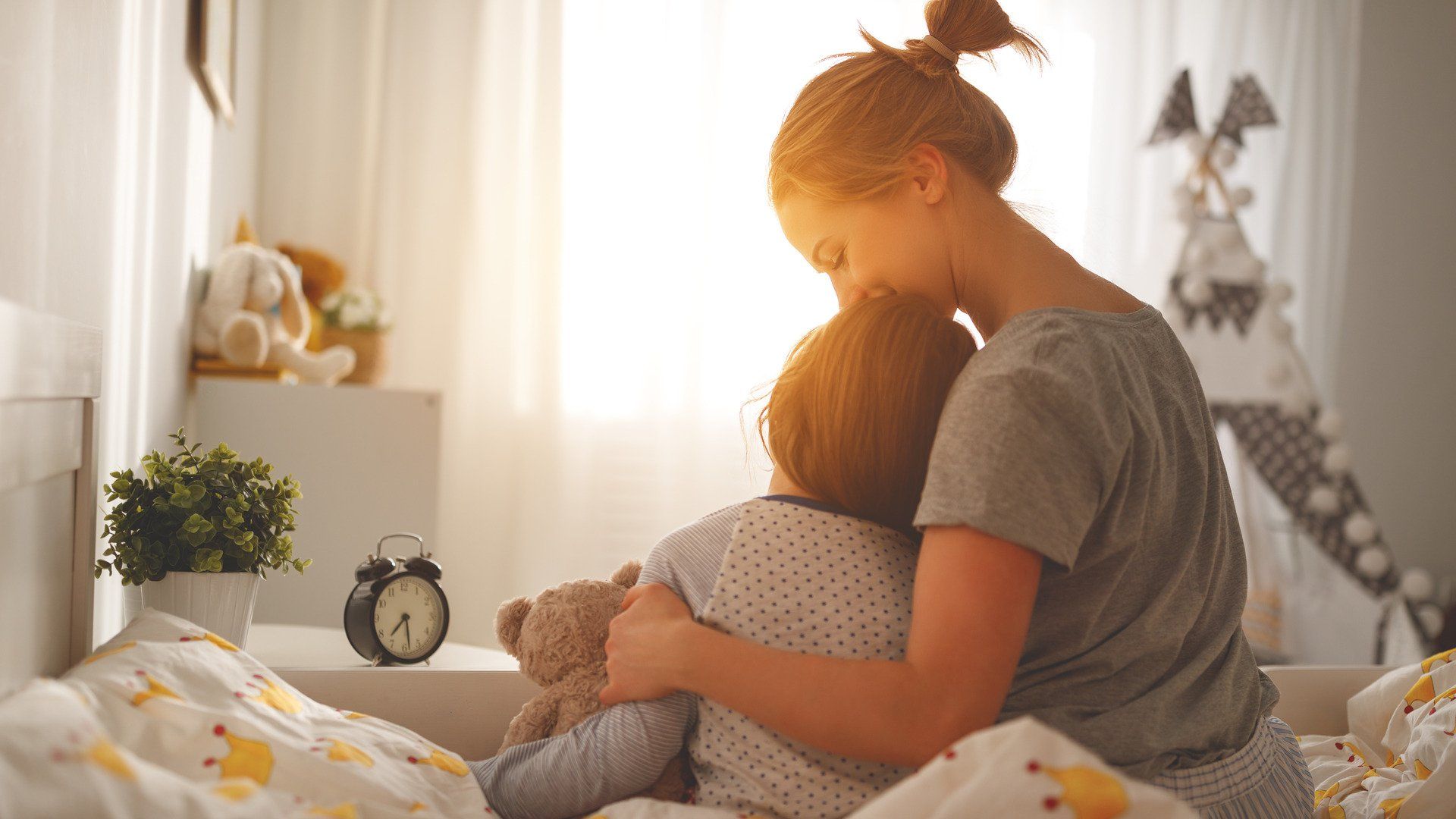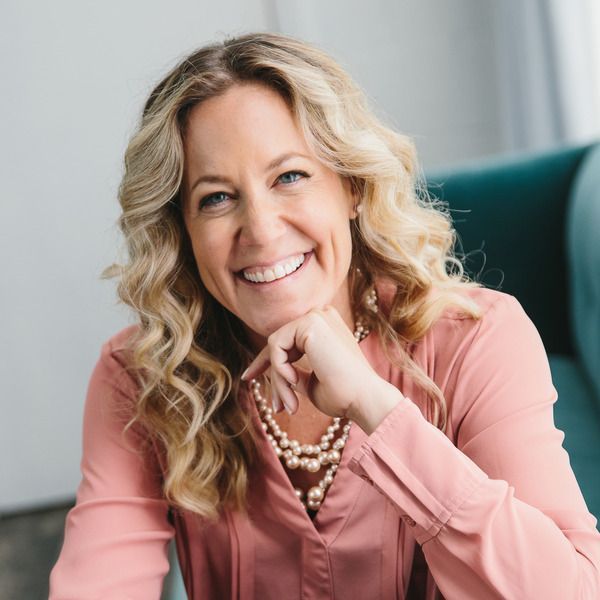How to Respond When Your Child's Behavior Suddenly Changes: A Parent's Guide

There isn't anything that more effectively sends a parent's nervous system into chaos than when their formerly sweet, caring, and *mostly* charming child's behavior deteriorates into a new expression of anger, acting out, or hurting siblings or other children (with words or bodies).
As a parent and the founder of The Jai Institute for Parenting, I've experienced this firsthand. We get scared. We wrack our brains for where we went wrong. We begin to wonder if something is wrong with our child. Of all the challenges we face as parents, this is one of the biggest parenting issues—when our child's behavior suddenly changes, we feel helpless. We don't know what to do.
Understanding Normal vs. Concerning Behavioral Changes
Before I share my personal story, it's important to recognize that some behavioral changes are part of normal development. Children naturally go through phases as they grow and mature. However, certain changes should prompt closer attention:
Normal Developmental Changes:
- Testing boundaries during toddler years
- Increased independence in preschool
- Mood swings during pre-teen years
- Social relationship shifts in middle school
Concerning Changes That Need Investigation:
- Sudden aggressive behavior
- Withdrawal from previously enjoyed activities
- Significant changes in sleep or eating patterns
- Unexpected academic struggles
- Social isolation or peer relationship problems
Our Family's Story: When Everything Changed
My two children are 18 months apart in age and were sweet and tender with each other from the get-go. Sure, they had (and still have!) their squabbles, but we got through them. My son, Myles, is the elder of the two, and he'd always loved and cared for his baby sister.
Until one day, when he was in the second grade... his behavior changed. Swiftly and dramatically.
He started being really physically aggressive with her. He wouldn't share. He would put his little face in her little face and just scream. His friends stopped wanting to come over for sleepovers.
When I pressed a friend about what was going on, she shared that her son was scared of Myles. Gulp. I remember feeling shocked, scared, and worried. It was gut-wrenching.
The Foundation of Understanding Behavior
As the founder of The Jai Institute for Parenting, I was aware of one of our guiding truisms: **All behavior is an expression of a need and whether that need is met or unmet.**
But what had changed? Because from my perspective, nothing really had. He hadn't changed schools. Things were stable at home. I felt myself slipping into the internal language that I know so many parents experience... wondering in my quiet thoughts whether my sweet boy was turning into an aggressive boy. I secretly wondered if this "was just who he was."
The Detective Work: Understanding Your Child's Behavioral Changes
As parenting coaches, one of the biggest tools we bring to bear is inviting our clients to get curious rather than jump to conclusions. Remembering this, I started to really focus on what was going on with my son.
Key Questions I Asked Myself:
- Were there times of day when his behavior would escalate?
- What environments were the most challenging for him?
- What patterns could I recognize?
What I Discovered
I began to notice that he was particularly aggressive after school and made some calls. His second-grade teacher had a great reputation, and I remember being so excited learning that Myles would be in her class. She was pregnant but was due to be in the classroom until late spring. When I called the school, I found out that she'd been having some complications and that a substitute had been in the classroom for the last few weeks. I asked if I could come observe.
The Classroom Reality
One Tuesday morning, I spent a couple of hours in his classroom. What I found was eye-opening:
- An inexperienced substitute teacher
- 32 kids in the class
- Complete mayhem
- A little girl repeatedly pushing my child when the teacher's back was turned
- My son looking defeated and scared but not asking for help
- Children making fun of him when he left for his Math group, calling him "stupid math boy"
It all made perfect sense. If he was feeling powerless at school, of course, his reaction would be to exert power in an environment he could control.
Taking Action: The Bold Decision
I called the principal and shared my concerns, but after another couple of weeks, it was clear that this situation was not going to resolve itself. And then I found out that his teacher would not be returning to the classroom that year. I made a bold decision to pull him from school.
I found a sweet Montessori school on a farm where both of the kids could spend more time outside than in and begged the head of the school to make space for us.
I remember a neighborhood mom saying to me at the time, "You know, it's going to be the same situation at his new school. Myles is who he is."
It felt like being kicked when I was already down. But I reminded myself that what other people thought about my children and the choices we made as a family were none of my business.
The Moment of Truth
Full of hope (and a good jolt of faith), off we went to the first day of our new school. When I picked the kids up in the afternoon, they were both beaming. But here's what happened that cracked my heart open:
Charlotte, my daughter, simply asked Myles if she could have some of his water. He passed her the thermos. "Sure!"
Tears started streaming down my face. I remember describing this moment to their dad. "It was like he was a wilted piece of celery before, and we put him in a glass of cold water." In that simple act of sharing without any escalation, I knew we'd turned a corner.
There was my sweet, kind boy. He was back.
The Power of Understanding vs. Labeling
When I imagine this scenario differently, I wonder what would have happened if I hadn't had access to Jai's work. The consequences would have been devastating:
- Myles would have been granted an identity that might have followed him for life
- He'd be assigned a role that he didn't choose
- His anger and rage would have continued to escalate
- He'd most likely start to hate school and learning
- He'd struggle to make friends
- He'd feel incredibly misunderstood, leading to resentment and bitterness
Thankfully, none of this is the case. He is a sensitive, caring, confident, and responsible 20-year-old. He was not defined by his behavior. He was supported through his behavior.
Key Lessons for Parents
1. Embrace Curiosity Instead of Jumping to Conclusions
Resist the urge to create conclusions about the meaning of your child's behavior and try to understand what is happening in their world that is influencing their behavior.
Look for changes in:
- Environment: Has something changed at school or home?
- Social/Relational: Are there new people in their lives, or have relationship dynamics shifted?
- Mirroring: Is there more stress in the family that the child is reflecting?
- Behavioral: Is the child going through a developmental leap?
2. Claim Your Rightful Place as Your Child's Advocate
Follow your intuition as a parent to make any changes possible that might lessen the impact of the underlying cause of their behavior change.
Get creative about what might provide relief:
- Consider temporary accommodations
- Look for unmet needs that can be addressed
- Focus on solution-oriented thinking
- Remember your role as an advocate versus disciplinarian
3. Stay in Consistent Communication Around Boundaries
Remain committed to the innocence of your child while maintaining boundaries and limits through consistent, patient, and kind communication. Consider:
- Can triggers be minimized or removed?
- What additional support might be needed?
- How can positive conditions be maximized?
Turn Your Passion for Parenting Into a Career That You Love
Access our FREE Information Session at the link below.
Moving Forward: The Power of Patient Support
Children grow. They mature. Phases come and go. If we can resist the urge to decide who our child is or is not based on how they navigate the difficult journey from childhood to adulthood, we will far better serve their social and emotional needs.
Embracing our role as their protector, safe harbor, advocate, and, indeed... #1 fan regardless of their behavior will allow our children to move through behavioral issues safely and effectively without causing long-term harm to their sense of self-worth or confidence.
Need Additional Support?
- Connect with a Certified Parenting Coach through our directory
- Consider becoming a Certified Parenting Coach yourself
- Join our community of parents committed to understanding and supporting their children
- Access our online resources and workshops
- Participate in our parent support groups
*Remember: Children do not have the ability to communicate the circumstances that are influencing their behavior. Their behavior is the communication. And so our job, as peaceful parents, is to listen.*
Meet Your Author, Kiva Schuler
Jai Founder and CEO
Kiva’s passion for parenting stemmed from her own childhood experiences of neglect and trauma. Like many of her generation, she had a front row seat to witnessing what she did not want for her own children. And in many ways, Jai is the fulfillment of a promise that she made to herself when she was 16 years old… that when she had children of her own, she would learn to parent them with compassion, consistency and communication.
Kiva is a serial entrepreneur, and has been the marketer behind many transformational brands. Passionate about bringing authenticity and integrity to marketing and sales, she’s a sought after mentor, speaker and coach.
Share This Article:
Curious for more?














